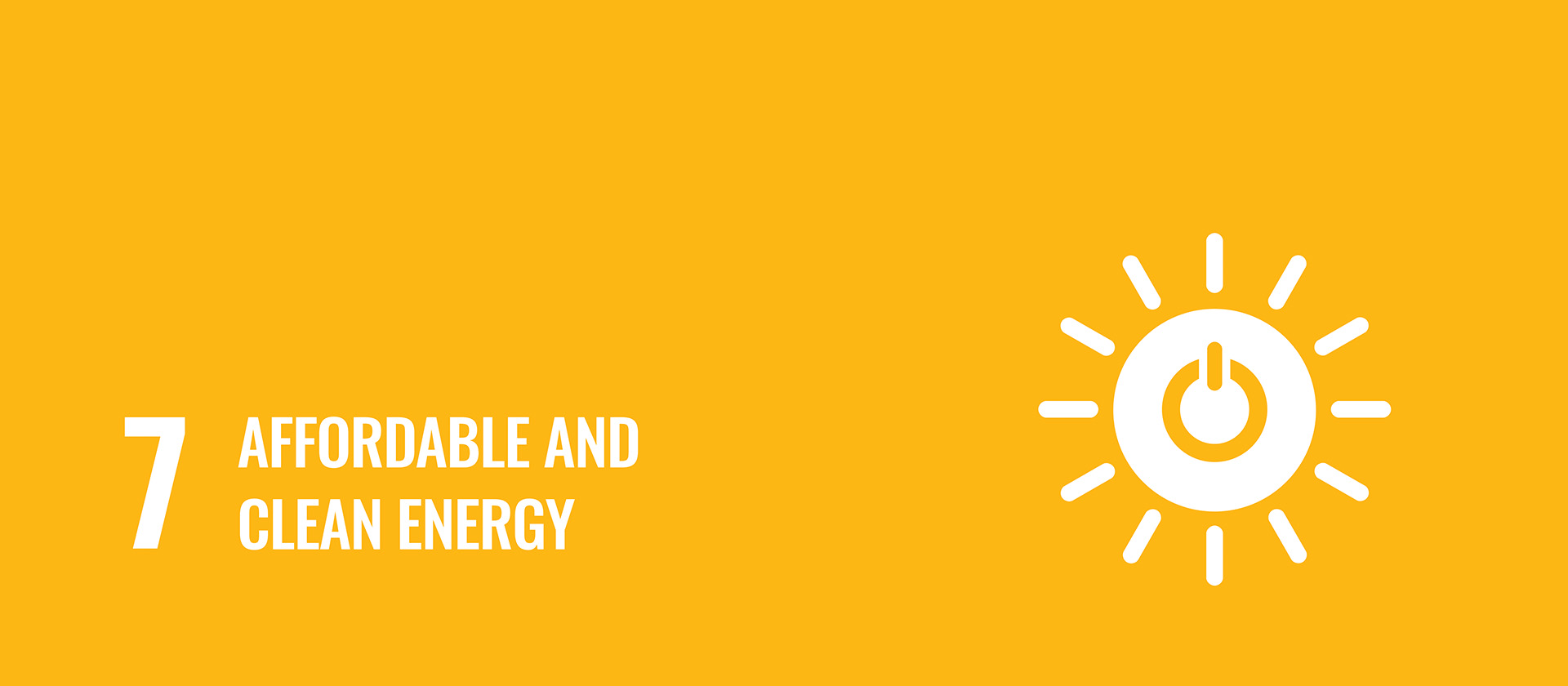The Energy progress report gives an indication of how well countries have performed with regard to energy efficiency, access to energy and renewable energy. Increasing energy efficiency, energy access and increasing renewable energies across the globe, with a collective effort, will hopefully see the SDG 2030 target reached.
Find out more about Goal 7: Affordable and clean energy.
Teaching and learning
University of Liverpool students are able to this topic from a number of different perspectives within course modules. Examples of course modules that have a direct or indirect focus on affordable clean energy (as assessed by students) include:
- Energy conversion, renewable energy and smart grid (ELEC435)
- Human environment interactions (ENVS315)
- Geographies of energy and natural resources (ENVS516)
- Renewable Energy and Smart Grid (ELEC435)
We recognise that there is much more to do to equip students with the knowledge and skills that they need to make a contribution to achieving this global goal. Working with the Guild of Students our undergraduates and postgraduates have the opportunity to audit their curriculum modules for their relevance to SDG7: Affordable and clean energy and to make recommendations for changes to the course content. For more information on how students can get involved see the Guild curriculum audit report.
The University has also recently established a Climate Action Working Group. This group brings together academics, students and representatives from the Centre for Innovation in Education to develop a strategic plan for embedding SDGs into the curriculum including SDG7.
There are also a number of ways that students can support the aims and objectives of SDG7 through extra-curricula activities, including through volunteering opportunities provided by the Guild of Students.
Research and knowledge exchange
The University contributes towards schemes to provide affordable clean energy and provide potential solutions across many areas of research. Some key examples are:
- Towards a cleaner and greener city
- GeSe: Optical Spectroscopy and Theoretical Study of a van der Waals Solar Absorber
Leadership, governance and professional services
Examples of Leadership, governance and professional services include:
Heating and Infrastructure Project (HIP)
The HIP Project is an example of how proactive the University of Liverpool is to provide affordable clean energy. The University’s invested £19 million in the Heating and Infrastructure Project (HIP), which led to the construction of the Combined Heat and Power Plant (CHP) and Energy Centre.
The CHP uses gas to generate electricity for the University on-site and then captures the excess heat generated in order to distribute it into the district heating system for the University. The University is experiencing savings of 7,000 tonnes of CO2 each year from the CHP, resulting in a 13% reduction in the University’s carbon footprint.
The Energy Centre then allows the University to monitor the electricity and heat produced from the CHP, alongside the energy received from utility companies.
The University has recently invested in three solar PV sites located on the Engineering Building (block B), Foundation Building, and at Ness Gardens (as part of the weather station). Each site has the potential to save up to 20 tonnes of C02. Solar thermal panels are also proposed to be installed on south-facing roof areas of the Vine Court residences to supplement the domestic hot water demand thus reducing the gas loads.
The University is currently conducting feasibility studies into wind energy generation, biofuels and anaerobic digestion.
Back to: Sustainability
